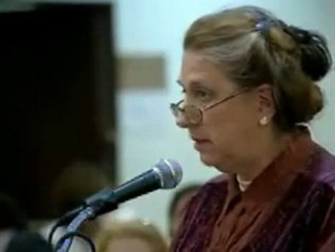One of Florida’s strangest bankruptcy cases is drawing to a close in federal court in Fort Lauderdale.
Pamela Carvel, the litigious niece of Carvel Ice Cream’s late rags-to-riches founder, filed the case voluntarily last year amid a bitter, 17-year legal struggle for control over the assets from an estate once valued at $67 million.
She got more than she bargained for.

Carvel’s $1.6 million home on secluded Mayan Lake off A1A in Fort Lauderdale’s exclusive Harbor Beach neighborhood was seized and auctioned at the end of May to the highest bidder. Her six New York City rental apartments were also sold off against her wishes by court order.
U.S Trustee Leslie Osborne said he’s recovered about $2.9 million to pay off Carvel’s creditors, including several law firms and the Thomas and Agnes Carvel Foundation, with whom Pamela Carvel has grappled so long in court.
Carvel also is a fugitive.
U.S. Bankruptcy Court Judge John K. Olson of Fort Lauderdale ordered U.S. Marshal to arrest her on sight nearly a year ago for civil contempt after she repeatedly ignored his orders.
Carvel does not have an attorney. In a recent email to Broward Bulldog, she accused the judge and Osborne of being in cahoots with the foundation created by her late aunt and uncle.
“There has been theft of over $700 million belonging to the Carvel family, with tax evasion through estate tax fraud, income tax fraud, charity fraud and capital gains tax fraud,” she wrote. “Justice goes to the highest briber. Crime is rampant in the courts … but this is nothing new.”
Carvel’s initial court filings indicate, and those familiar with the case contend, that Carvel’s bankruptcy filing was a ploy in her broader legal war against the foundation.
If so, she was the one trapped by the legal tactic.
Court records trace the “genesis” of the litigation to the 1988 “mirror-image wills” signed by the Carvels.
Read more here: http://www.miamiherald.com/2012/07/17/2904959/lawsuits-fly-amid-legal-war-over.html#storylink=cpy
